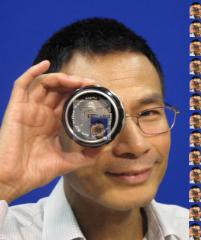Spyware - our licence to be a dill
Published on 11 December, 2009
Many of us are loading spyware on our computers, usually by accident, and CQUniversity researcher Ken Howah is keen to find out why.
The Rockhampton-based academic is hoping to find out the precise factors that motivate people to download and install software that may potentially contain spyware.

Ken Howah - keeping an eye on spyware
Ken's tips to stay out of trouble:
- Don't open anything (eg in an Email) you weren't expecting or didn't order or solicit.
- Avoid things that seem too good to be true in terms of free software.
- Don't download from companies you have never heard of.
-----------------------------------------------------------------------------
"Why to people ignore end-user licence agreements and notices and is there a relationship between their level of IT literacy and their willingness to download software containing spyware?" he queried.
Spyware is a software code that is concealed from the user. Its purpose is concealed, its activities are concealed and normally its existence is concealed.
Spyware is normally acquired accidentally by downloading something that has spyware attached. Not all spyware is illegitimate. A lot of spyware producers will have agreements with ordinary software manufacturers so when people download the software the spyware will accompany it, dovetailing into the system.
"The other main way is people involuntarily or indiscriminately clicking on things; opening emails where perhaps they shouldn't, launching executables, installing or downloading software they did not know they had," Ken said.
"Cookies are not strictly speaking spyware because all they do is to personalise website services. However because Cookies do contain data they become a natural target for people who wish to steal information.
"Normally the purpose of spyware is to take information such as credit card details ... things that can be used to make money or illegitimately gain information. A more benign use is to create pop up adverts.
"Of greatest concern is spyware that attempts to breach privacy. It is capable of using your internet link to upload information without you knowing.
"For example, it's like a Trojan horse code embedded in apparently legitimate software. For example, a freebie calendar is downloaded but the user does not realise this is a cover for another piece of code capable of contacting the internet using their link to transmit information to an unknown third-party."

